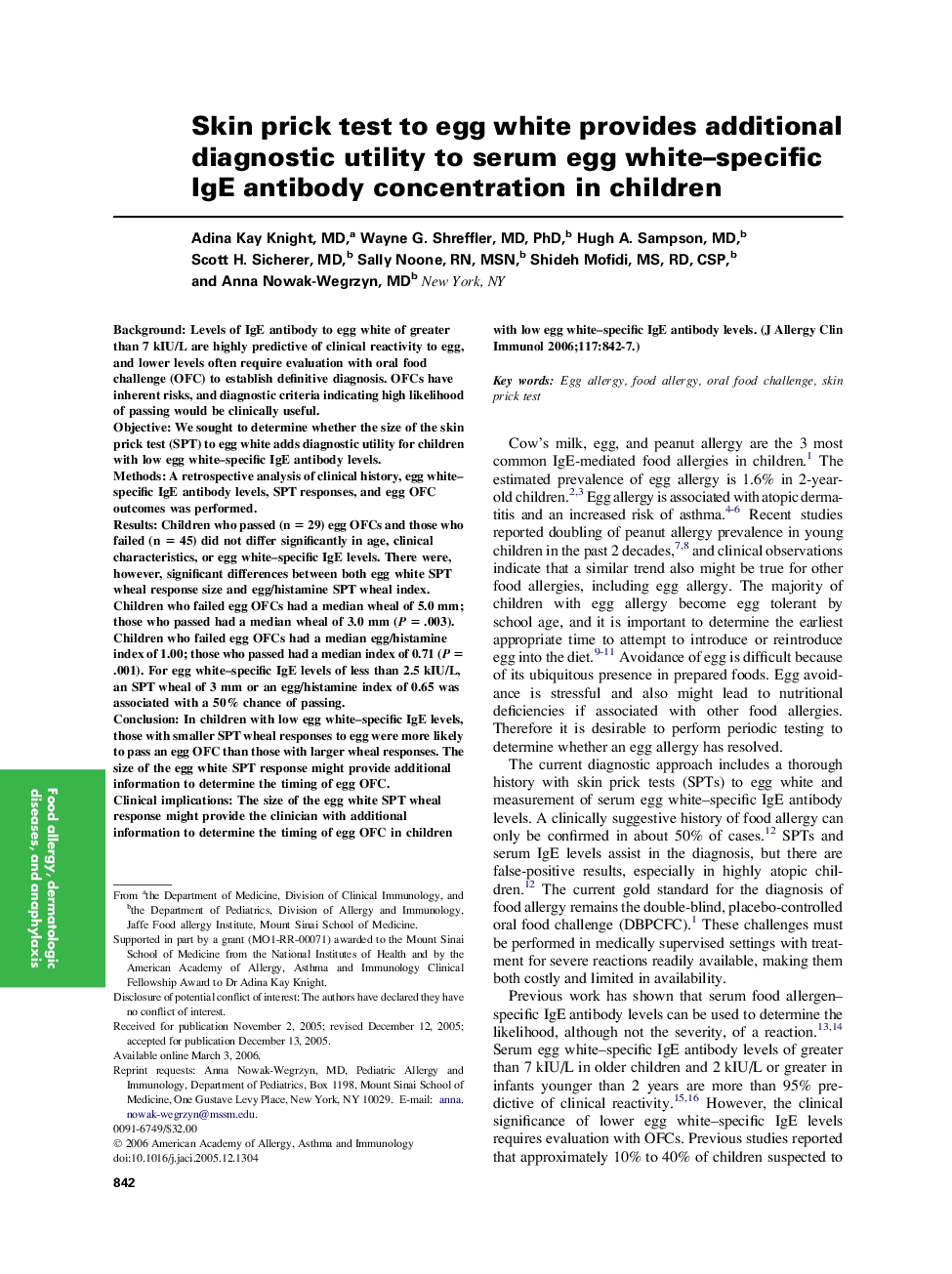| Article ID | Journal | Published Year | Pages | File Type |
|---|---|---|---|---|
| 3203066 | Journal of Allergy and Clinical Immunology | 2006 | 6 Pages |
BackgroundLevels of IgE antibody to egg white of greater than 7 kIU/L are highly predictive of clinical reactivity to egg, and lower levels often require evaluation with oral food challenge (OFC) to establish definitive diagnosis. OFCs have inherent risks, and diagnostic criteria indicating high likelihood of passing would be clinically useful.ObjectiveWe sought to determine whether the size of the skin prick test (SPT) to egg white adds diagnostic utility for children with low egg white–specific IgE antibody levels.MethodsA retrospective analysis of clinical history, egg white–specific IgE antibody levels, SPT responses, and egg OFC outcomes was performed.ResultsChildren who passed (n = 29) egg OFCs and those who failed (n = 45) did not differ significantly in age, clinical characteristics, or egg white–specific IgE levels. There were, however, significant differences between both egg white SPT wheal response size and egg/histamine SPT wheal index. Children who failed egg OFCs had a median wheal of 5.0 mm; those who passed had a median wheal of 3.0 mm (P = .003). Children who failed egg OFCs had a median egg/histamine index of 1.00; those who passed had a median index of 0.71 (P = .001). For egg white–specific IgE levels of less than 2.5 kIU/L, an SPT wheal of 3 mm or an egg/histamine index of 0.65 was associated with a 50% chance of passing.ConclusionIn children with low egg white–specific IgE levels, those with smaller SPT wheal responses to egg were more likely to pass an egg OFC than those with larger wheal responses. The size of the egg white SPT response might provide additional information to determine the timing of egg OFC.Clinical implicationsThe size of the egg white SPT wheal response might provide the clinician with additional information to determine the timing of egg OFC in children with low egg white–specific IgE antibody levels.
